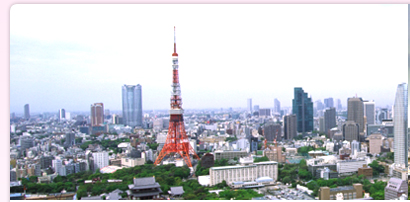2012年11月16日
 One of the surprises of this shooting, was to discover how Shochu matches very well with different kinds of food. And it is also so much fun do decide to drink it this way or that way according to the dish. And of course, to decide which Shochu to drink.
One of the surprises of this shooting, was to discover how Shochu matches very well with different kinds of food. And it is also so much fun do decide to drink it this way or that way according to the dish. And of course, to decide which Shochu to drink.
It can go with cuisine as diverse as white fish, meat, and spicy food but also with very elegant refined Japanese cuisine. Although I must say the best for me was the mariage between the dark pork meat Shabu Shabu prepared in a divine way by the master… and the Imo-Shochu Oyuwari (with hot water). Excellent!
But I am French!! And to my great pleasure, Shochu and Awamori can match also with some cheese such as Brie or camembert. A “fromage avec Shochu”, that could be a good new trend in Paris!
It goes also very well with a quiche Lorraine or some mushrooms. In these cases, it is better to drink it straight, but at a cold temperature. Bon appétit!
After this shooting, I became a real fan of Shochu and now I drink it regularly, mainly on the rocks.
Cheers!

IN GOOD SPIRITS SHOCHU & AWAMORI
Japan International Broadcasting Inc. (JIB) Oct. 31, 2012
As a French wine lover (and connoisseur), I was eager to discover the world of Shochu, although completely different, but with a few common points.
The common point between wine and Shochu is that both can be enjoyed while eating. I had more the image of Shochu as an “apéritif” or “digestif” but it is a perfect drink to go along with your dinner. So before meal, after meal, or with meals, you have the choice. Is it a big difference compared to other spirits?
The differences?
A higher alcohol degree than wine. Although it has quite a high degree of alcohol, it is a very delicate drink, with complex aroma and elegance. And contrary to wine, you can mix it with water, which makes it milder.
Shochu characteristics
Once the bottle is opened, you can keep it for months and it still tastes perfect. And as far as the tasting is concerned, you cannot really compare the colour, but the aromas are very subtle. As for wine, it is nice to discover the Shochu first by its fragrance, its aroma. There are some fragrances you find in white wines or champagne. During the tasting (in the mouth), like wine, you have the different phases you can enjoy: the attack, the middle and the finish or even after taste.
Cheers!
IN GOOD SPIRITS SHOCHU & AWAMORI
Japan International Broadcasting Inc. (JIB) Oct. 30, 2012
In TOKYO
 There are many great and fun places to drink shochu. Some very casual standing bars, some elegant dinner places, some nice Izakaya. And in fact, all kinds of people are shochu drinkers, among them many women.
There are many great and fun places to drink shochu. Some very casual standing bars, some elegant dinner places, some nice Izakaya. And in fact, all kinds of people are shochu drinkers, among them many women.
Kaori, very charming shochu advisor, explained to me the basics of shochu. Merci!
 I used to drink it on the rocks and I did not know at all about the different kinds of ingredients that can be used to make shochu (not only Imo, sweet potato, as you will discover in the programme.)But the best way to know about the shochu world is to go to the real shochu’s birth place, in the island of Kyushu, and to see how it is made. Bon Voyage!
I used to drink it on the rocks and I did not know at all about the different kinds of ingredients that can be used to make shochu (not only Imo, sweet potato, as you will discover in the programme.)But the best way to know about the shochu world is to go to the real shochu’s birth place, in the island of Kyushu, and to see how it is made. Bon Voyage!
In Kagoshima
A few surprises during the filming:
First, there was a very strong typhoon coming right on Kagoshima in Kyushu exactly at the same time as us. Very impressive! Very frightening, but also the most beautiful clouds I have ever seen from an airplane. I really felt the strength and power of nature, which can give the best and the worst.
The making of shochu
Then, going to a brewery, I could see how, apart from the distillation process, the making of shochu is similar to wine. What I always love when visiting a winery is the nice smell of the grapes fermenting. A very special, very deep fragrance. This time, it was the sweet potatoes, Imo, fermenting smell that was enchanting.
And there was a big discovery for me during my visit at this brewery. I was able to see and touch the key material of making Shochu.
I even had a chance to enter to a special room… Check out the programme to find out my discovery!


IN GOOD SPIRITS SHOCHU & AWAMORI
Japan International Broadcasting Inc. (JIB) Oct. 19, 2012
2012年10月30日
This year again the Sakura Grand Prix was attributed to a French film , The Other Son, and the director’s prize to Lorraine Lévy, for the first time in 25 years to a woman. The 5 members of the jury said they were completely unanimous about this decision. This film deals with the Identity question in a very difficult context , the israelo-palestinian relations. It is a very deep and very positive film. Bravo!
Cette année encore , c’est un film français qui remporte le Sakura Grand Prix. Bravo au film “le fils de l’Autre” et à sa réalisatrice Lorraine Lévy qui remporte aussi le prix de la meilleur réalisatrice. C’est la première fois en 25 ans que ce prix est attribué à une femme. “Le fils de l’Autre” traite de la question de l’Identité d’une manière très subtile dans un contexte difficile , les relations israélo-palestiniennes, d’une manière très fine et positive. Bravo à Lorraine Lévy et à son film! Je lui souhaite un aussi beau succès que les Intouchables. Les 5 membres du jury ont expliqué à la presse que leur décision concernant le grand prix était à l’unanimité, et dans une ambiance très agréable.





» Tokyo International Film Festival
2012年10月22日
Contributed Articles
2012
“Married Couples After Childbirth, How to Keep Love Alive” (Asahi Shimbun Digital newspaper, January 25, 2012)
2010
“Super Potential Power: New Leaders of a New Japan?” in Economy, Culture & History Japan Spotlight Bimonthly (Japan Economic Foundation)
2009
“Like a Mini-Paris – Living in Kagurazaka” in the January 2010 edition of Tokyo-Jin monthly magazine (Toshi Shuppan) on sale December 10,
2009
“A Japanese Art Illuminating History: Special Ikebana Exhibition” in the December 2009 (25th) edition of Croissant magazine (Magazine House) on sale December 10, 2009
“A Tokyo Parisienne Loves this Town: Wine Tour in Kagurazaka” in Wine Jikan (A Time for Wine), an “Ei-Mook 1837” magazine-book (Ei Shuppan), on sale November 20, 2009
2012年10月21日
Regular Columns
2009 – 2010
“My Truth Column” in the Tokyo Shimbun Newspaper , every week
2009 –
“Dora Tauzin’s Premium Collection” Platinum Serai magazine (Shogakukan)
2007-2008
“Dora’s stray-Cat Bonjour!” One-year weekly series every Thursday in Asahi Shimbun newspaper
2006-2007
“Dora’s Aronzi Aronzo – Charming Kagurazaka Couples” 7-part series in “Kagurazaka Town Diary”
2002-2006
“Dora Tauzin’s Kagurazaka Diary” 12-part series in “Kagurazaka Town Diary”
2002-2003
“Le Style de la Parisienne” 12-part series in weekly magazine “France” (Hakusuisha Publishing)
2000
” People Dora would Like to Meet” regular column in “JOYCE JAPON” magazine
1997
“Le Paris de Dora” 12-part series in Marie Claire magazine (Chuokoron Shinsha)
1993
“A Parisienne in Tokyo” 13-part series in Super Businessman magazine (Sogo Horei Publishing)
2012年10月20日

An international journalist living as a “bridge between France and Japan”
I was born in Paris and live now in Kagurazaka, Tokyo. Going back and forth between Paris and Tokyo, I am involved in a lot of different activities! I write articles and give talks covering a variety of areas, from personal themes like lifestyle and fashion, to women’s issues, city design, and how to balance life and work. I also have to admit a passionate love for wine and gourmet cuisine.
Dora Tauzin
[Background]
International journalist and essayist. After obtaining a master in Applied Foreign Languages from the Sorbonne, graduated from the Paris Institute of Political Studies (Sciences-Po) with recognition for outstanding academic achievement.
A citizen of the world, Dora is fluent in five languages and has also lived in Berlin, London and New York. After working in the Public Relations Department of the United Nations, she moved to Japan to host NHK Television’s “French Conversation” program for five years. She has also lectured at Keio University, and while currently a lecturer for organizations including the French Institute of Japan in Tokyo and the Academy of Wine, she is very active as a bridge between France and Japan, through many activities such as writing newspaper and magazine articles, as a charming host and speaker for lectures and other events. Dora also appears often on TV and radio as journalist and commentator as well.
Author of regular columns: “Dora’s stray cat Bonjour!” (2007-2008, Asahi Shimbun newspaper) and ” Column My Truth” (2009-2010, Tokyo Shimbun newspaper). Author of many books, including “Woman Before Mother” (Shogakukan) and “Live Your Own Life: Enjoy Today Parisian-Style!” (Kawade Shobo Shinsha).
Recipient of the Chief Secretary’s Award (Cultural Communications Division) from the Ministry of Culture.
» Sanma and Okamura’s premium Talk Show – Laugh! Super-Cosmic Special!!
http://v.youku.com/v_show/id_XMzA1OTQxODg0.html
» Why isn’t marriage popular in France, the Nation of Love?
http://allabout.co.jp/gm/gc/383965/
» What are childcare and care for the elderly like in France? Japan, fight for love!
http://allabout.co.jp/gm/gc/384339/
» Françoise Bergaglia
http://www.fbergaglia.net/Entretien-DT.htm
« 次のページ
 One of the surprises of this shooting, was to discover how Shochu matches very well with different kinds of food. And it is also so much fun do decide to drink it this way or that way according to the dish. And of course, to decide which Shochu to drink.
One of the surprises of this shooting, was to discover how Shochu matches very well with different kinds of food. And it is also so much fun do decide to drink it this way or that way according to the dish. And of course, to decide which Shochu to drink.



 There are many great and fun places to drink shochu. Some very casual standing bars, some elegant dinner places, some nice Izakaya. And in fact, all kinds of people are shochu drinkers, among them many women.
There are many great and fun places to drink shochu. Some very casual standing bars, some elegant dinner places, some nice Izakaya. And in fact, all kinds of people are shochu drinkers, among them many women. I used to drink it on the rocks and I did not know at all about the different kinds of ingredients that can be used to make shochu (not only Imo, sweet potato, as you will discover in the programme.)But the best way to know about the shochu world is to go to the real shochu’s birth place, in the island of Kyushu, and to see how it is made. Bon Voyage!
I used to drink it on the rocks and I did not know at all about the different kinds of ingredients that can be used to make shochu (not only Imo, sweet potato, as you will discover in the programme.)But the best way to know about the shochu world is to go to the real shochu’s birth place, in the island of Kyushu, and to see how it is made. Bon Voyage!






